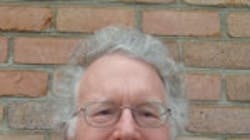Executive View -- Building a Green Future -- Brick by Brick
Historians trace brick manufacturing back thousands of years to the very cradle of civilization. While the basic formula for brick production -- mixing earth and water and then drying and firing the bricks -- hasn't changed since ancient times, manufacturing processes and technologies have evolved to the point where the brick industry is becoming a model of sustainability.
The Brick Industry Association estimates that brick manufacturers have reduced the overall energy needed to produce a brick from an average of 4,000 British thermal units (Btu) per pound in 1970 to 1,239 Btu per pound today -- a reduction of nearly 70%. Currently, more than 80% of brick kilns are fueled by natural gas, and manufacturers such as Boral Bricks Inc. are pioneering the use of sawdust and other alternative fuels to fire their kilns.
Boral's newest manufacturing facility, in Terre Haute, Ind., clearly reflects this commitment to sustainability. The $58 million, 295,000-square-foot facility, which opened in March 2008, boasts the ability to churn out 120 million bricks annually -- without producing any waste. The plant's massive 530-foot-long kiln is fueled by methane gas from a nearby landfill, and the LEED-certified building features reflective roofing material, sensor-operated lighting, wastewater recapture, waterless urinals and low-flow toilets, among other energy-efficiency measures.
Terry Schimmel, vice president of technical services for Atlanta-based Boral Bricks (the U.S. operating division of Australia-based construction materials supplier Boral Ltd.), recently talked with IW about Boral's sustainability practices.
IW: How far back does Boral's sustainability story go?
Terry Schimmel, Vice president of technical services, Boral Bricks Inc.
IW: According to Boral, about 50% of the company's brick production is accomplished through the use of alternative fuels to fire its kilns. Has Boral experienced any growing pains when trying some of these developing technologies, such as burning methane gas?
TS: We pride ourselves on partnering with green forward-thinking partners that can help us develop some of these systems. It's cutting-edge technology, and we stub our toe quite a bit. But we eventually get there, and that's just part of the process. There was no manual written on how you utilize wood waste as a fuel, or how you use landfill gas in a kiln, and probably the most challenging thing has been the evolution of the gasification of various waste products into a useful fuel source for firing a kiln.
IW: What was the site-selection process for Boral's Terre Haute, Ind., plant?
TS: It started off with market research on where brick could be sold, and Boral saw a pattern of growing demand from builders in Indiana and other states in the region. From there we looked for a site where there were raw materials that could be utilized for manufacturing bricks and an alternative energy source. It took quite a bit of matchmaking to find the site that we're on, where we are immediately adjacent to an existing landfill. We also found usable clay deposits in what was a coal strip mine [located less than a mile away], which we can reclaim and return to a much friendlier place after we reclaim it. Another key element was the fact that there is a new adjacent coal mining operation that regularly removes the overburden to get the coal, and we can use that overburden to make bricks. So we just hit a really good partnering scenario.
IW: In Boral's eyes, what is the business case for sustainable manufacturing?
TS: From top management all the way down, it's become a non-negotiable topic. It's not something we talk about -- it's just something we do. There are certain projects where we do calculate a return on investment, particularly with respect to some of the alternative-fuel systems. But for the most part, the company says, "We're just gonna do it."
About the Author
Josh Cable
Former Senior Editor
Former Senior Editor Josh Cable covered innovation issues -- including trends and best practices in R&D, process improvement and product development. He also reported on the best practices of the most successful companies and executives in the world of transportation manufacturing, which encompasses the aerospace, automotive, rail and shipbuilding sectors.
Josh also led the IndustryWeek Manufacturing Hall of Fame, IW’s annual tribute to the most influential executives and thought leaders in U.S. manufacturing history.
Before joining IndustryWeek, Josh was the editor-in-chief of Penton Media’s Government Product News and Government Procurement. He also was an award-winning beat reporter for several small newspapers in Northeast Ohio.
Josh received his BFA in creative writing from Bowling Green University, and continued his professional development through course-work at Ohio University and Cuyahoga Community College.
A lifelong resident of the Buckeye State, Josh currently lives in the Tremont neighborhood of Cleveland. When the weather cooperates, you’ll find him riding his bike to work, exercising his green thumb in the backyard or playing ultimate Frisbee.
